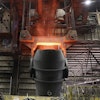This article first appeared in Industrial Distribution's March/April issue. To view it, click here.
I don’t mean to brag…well, actually, I do. Not only does it build positive self-esteem, but bragging can also be a necessary strategy to ensure that others are aware of your accomplishments.
We’re actually asked to brag all of the time. Think about completing a college application where you have to express why you’re a good pick for the school. Or the job interview where you have to persuade the interviewer that your skills and experience make you the best candidate.
It happens in our personal lives as well. Chances are, if you met your girlfriend’s or boyfriend’s parents, you bragged about yourself, at least a little. It was natural; you wanted to assure them that you were worthy of their offspring’s attention.
If we’re honest with ourselves, we admit that it actually feels good to talk about ourselves. Maybe, in fact, too good. A study by the Proceedings of the National Academy of Science showed that when we talk about ourselves, our brains respond in a way similar to when we get a reward like food or sex.
Perhaps this feeling of guilty pleasure is why we are so hesitant to share our accomplishments. That, and the very real fear that others might take offense at the broadcast of our good results.
In business, bragging done the right way is good. But here, too, even some of the most accomplished employees are hesitant to step up and claim their worth. They believe, often falsely, that their work will speak loudly enough for them. Unfortunately, in many busy work environments, managers spend so much time putting out fires that they do not always pay enough attention to the achievements that occur around them.
Just the other day, I was talking with a company president and his regional manager. The president began outlining several key steps he wanted the regional manager to take. As the president began listing them, the manager responded that he had already completed these items.
Imagine the increased appreciation the president had for the regional manager once he learned what had been accomplished. But why didn’t he already know? Most likely, it’s because the regional manager assumed the president didn’t want or need to know. Or perhaps the manager didn’t tell the president because he did not want to be seen as a brown noser or braggart. He may have felt that telling good news was blowing his own horn, while telling bad news was just relating a problem.
The good news is that there is a need – and a way – to effectively share news of your accomplishments without appearing obnoxious.
How to Brag Well
An intriguing article in a Psychology Today magazine revealed that other people don’t mind when you brag, depending on how you do it. For instance, if you boast that you led the department in selling widgets – yet again – your fellow members of the sales team (and any other employees standing by) will not be thrilled. If instead you just say that you’re thrilled because you sold X amount of widgets, you’re not seen as being as boastful. Comparing your achievements to others is seen more negatively than when you describe your achievements in a non-comparative way.
One of the most effective ways to brag on your accomplishments is to focus on your team’s good work — not just your own. While it may seem self-promoting to announce that you have just successfully completed Project X, when you say that your team, which includes Joe, Mary, and Mike, successfully completed Project X, it becomes an accolade, not a boast. Even though you are spotlighting the work of others, as the leader, the glow of that accomplishment also reflects on you.
Giving “shout outs” to your team is an effective way to let not just your boss, but also others in the company know what your team – and you – are doing. This praise has the added benefit of showing your appreciation to your employees. It can be as informal as giving them a verbal “thank you” for coming in on Sunday to finish a project. It can be more formal, such as an email or text that also copies your boss — letting him know about the team and your leadership.
To be most effective, bragging (or rather, sharing your good news) should be done to recognize an exceptional achievement. In other words, you shouldn’t brag/praise just for the sake of doing it. Then people really won’t like you, and both your boss and your employees will know your praise doesn’t really mean anything. But when you use this opportunity to point out exemplary work, your good intentions become obvious.
Look for opportunities to brag. Whether it is for a quantifiable achievement such as a new contract or for a less easily measurable gain such as winning a customer back that was planning to leave, stay alert for the chance to see and share good news.
Like rewards, bragging, horn blowing, or praise has several components:
• It should be immediate. Sometimes, managers wait to recognize an accomplishment until it is time for a performance or salary review, but that’s too late to make the recognition most effective. When sharing news of your own successes, you will have much more impact if you announce it in a timely manner rather than just at review time.
• It should be specific. Not just “good job,” but “good job on figuring out how to complete process X more efficiently.”
• It should include the result. “Productivity has increased ten percent.”
These same guidelines should be put into place when you’re talking about your own accomplishment. “We were able to figure out how to complete the process more efficiently, increasing productivity ten percent.”
You may wonder why YOU have to be the one in the middle, bragging upward to your boss and bragging downward about your team. It’s because you get it. You understand that in this new era of business, one that I call the WorkQuake™, where the knowledge economy has replaced the industrial one, our biggest strength comes not from our processes, products, and services, but from our people.
We all want to feel valued. Employees who do not feel that way will not be invested in the company and in its pursuits. Now, more than ever, when we need everyone to feel engaged enough to contribute at a high level, showing appreciation is key. Although we may wish our supervisors knew all of our achievements without us telling them, the reality is that they don’t have the time (or sometimes the inclination) to find out what we’ve been up to, as long as we’re not causing problems. Sharing our news, especially good news, is a helpful tactic in making sure we stay on the radar.
So next time you have good news to share about yourself or your team, go right ahead. As Dizzy Dean once said, “If you done it, it ain’t bragging.”
With his distinctive,direct, and oft-humorous approach, “recovering attorney,” and long-time business and executive coach Paul Glover presents 76 strategies and tips to thrive in the Knowledge Economy in his new book, WorkQuake, published by Round Table Companies. The blogger for FastCompany.com coined the term WorkQuake™ of the Knowledge Economy to capture his unique insights and tools to implement organizational change in the knowledge economy. Paul’s writing has been featured in The Business Edge, Vistage, Manufacturing.net, and Food Manufacturing. He is based in Chicago.























